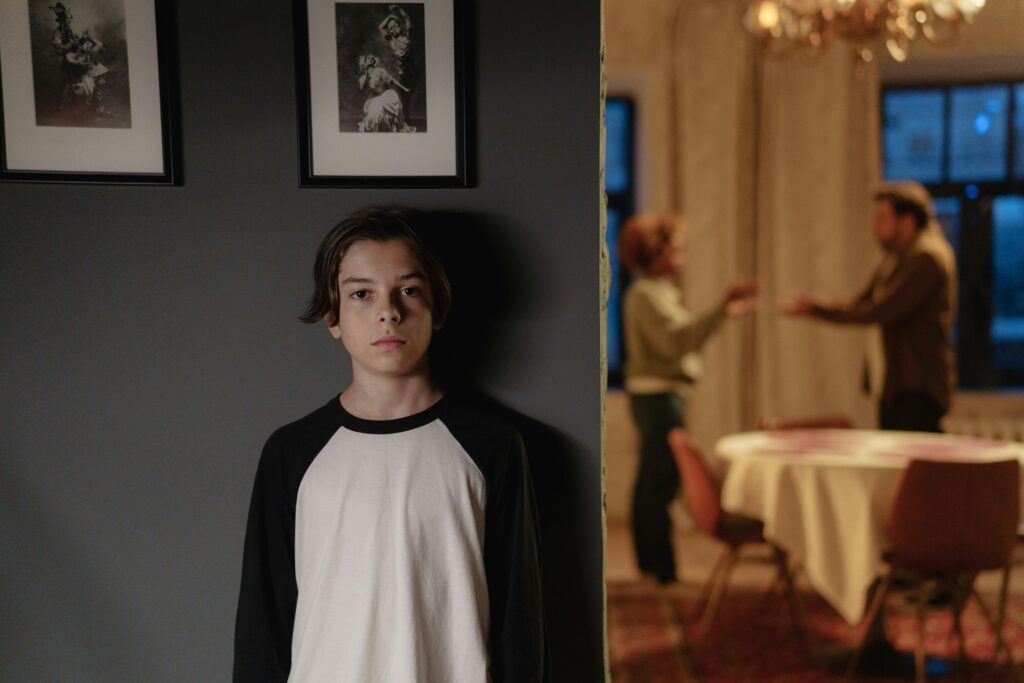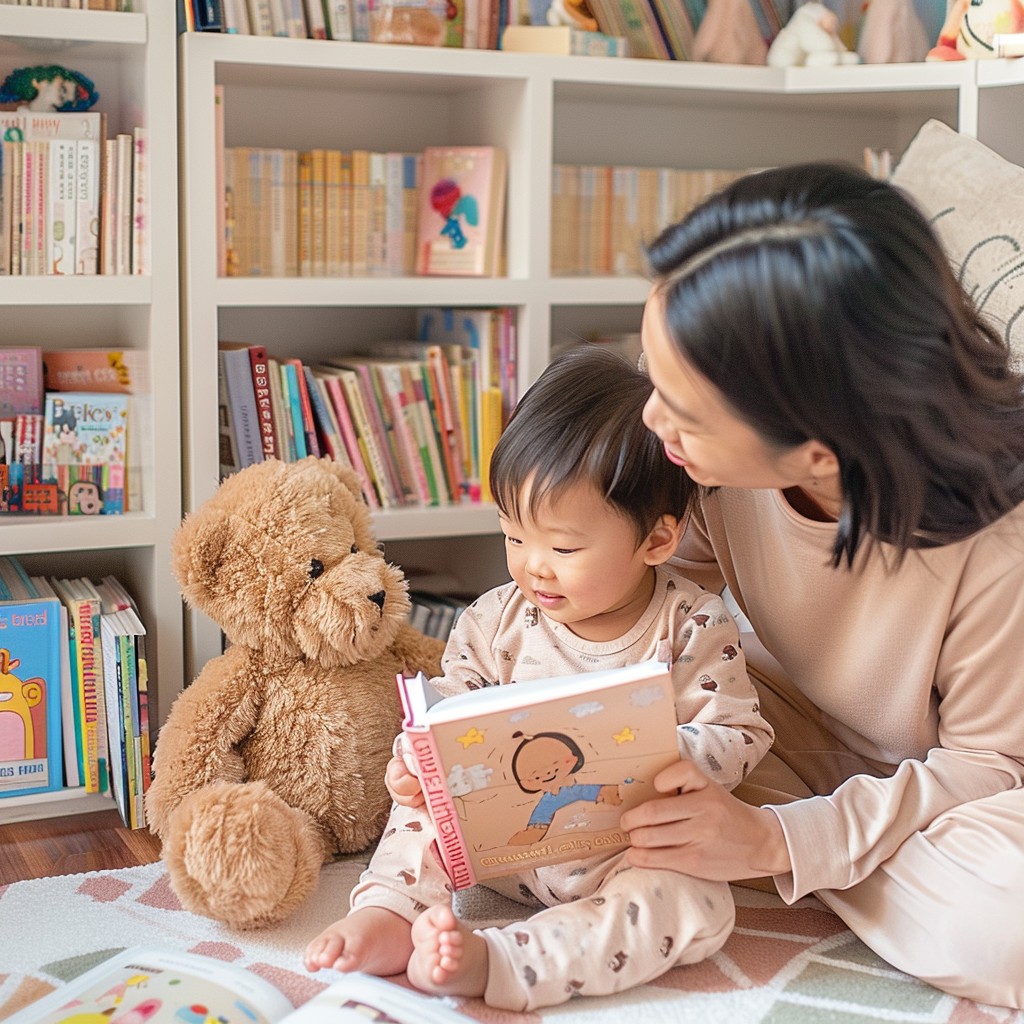Every child deserves a peaceful home, but what happens when parents’ conflicts disrupt this sanctuary?
Growing up, we all crave a safe and stable environment. Yet, when parents fight, this sense of security can be shattered. The emotional turmoil and stress that come with witnessing parental conflict can have profound effects on children.
In this article, we’ll explore the immediate and long-term impacts of parental fighting on kids. We’ll delve into how these conflicts affect their emotions, behavior, and psychological development.

By understanding these effects, we can better appreciate the importance of creating a harmonious home environment for our children. Let’s dive into the emotional rollercoaster that kids endure and how it shapes their future.
Witnessing Conflict: The Immediate Reactions
When kids see their parents fighting, their reactions are often immediate and intense. You might notice fear in their eyes or hear the tremor in their voice as they try to understand what’s happening. This fear stems from the confusion and helplessness that wash over them. They don’t have the tools to process such intense emotions or the maturity to grasp the complexities behind the argument.

It’s natural for children to feel scared when they witness conflict. They might worry about the stability of their family or fear that they are somehow to blame.
This emotional turmoil can leave lasting impressions, affecting their sense of security and well-being. It’s important to recognize that these reactions are not just fleeting moments of discomfort but significant experiences that shape their emotional landscape.
The Unwanted Mediator: Children Pulled into Conflicts
Sometimes, without meaning to, parents pull their children into their conflicts. This might happen through subtle comments or overt requests for the child to take sides. Imagine the pressure of being asked, “Don’t you agree with me?” or “Tell your mom she’s wrong.”

These situations place an unfair emotional burden on the child, making them feel responsible for resolving the tension.
When kids are dragged into parental disputes, they often feel like they must become peacemakers. This role reversal is confusing and stressful, as children are not equipped to handle such adult issues. They might feel torn between their parents, leading to feelings of guilt, anxiety, and divided loyalty. It’s crucial for parents to recognize the damaging effects of involving children in their disputes and to shield them from these adult issues.
Acting Out or Shutting Down: How Kids Cope
Children cope with witnessing parental conflict in various ways. Some might start acting out, displaying behavioral issues like aggression or defiance. These actions can be a direct response to the chaos they feel inside, a way to express their distress without words. Others might take on too much responsibility, trying to fix things or taking care of younger siblings, which can lead to burnout and anxiety.
Alternatively, some children withdraw emotionally, becoming quiet and reserved. This coping mechanism is their way of protecting themselves from the emotional pain they’re experiencing.
However, this emotional shutdown can lead to issues like depression and social withdrawal, signaling a cry for help that should not be ignored. Recognizing these behaviors as signs of distress is essential in providing the support and reassurance children need during these tough times.
From Childhood to Adulthood: Lasting Scars
The effects of parental conflict don’t end when the argument stops. For many children, the scars last well into adulthood. You might find that as an adult, you struggle to form healthy relationships. Trust can be a significant issue, making it hard to connect deeply with others. Low self-esteem is another common outcome, often stemming from a childhood filled with tension and negativity.
Imagine constantly needing approval and validation. This need can trace back to trying to navigate the volatile atmosphere of your home growing up. It’s a draining cycle that can make you feel inadequate, always seeking reassurance that you’re doing okay. These long-term psychological effects are like echoes from your past, influencing your present and shaping your future.
The Child as a Hero: Taking on Too Much Responsibility
Have you ever felt like you had to save the day as a kid? This is known as the “hero complex.” When parents fight, some children feel compelled to step in and resolve the conflict. They take on roles beyond their years, trying to mediate or care for siblings to bring peace to the household. While it might seem like they’re just being helpful, it’s a heavy burden for a young mind.
This overdeveloped sense of responsibility can rob children of a normal, carefree childhood. They miss out on just being kids, as they’re too busy worrying about adult issues. This imbalance carries into adulthood,
where they might feel compelled to solve everyone’s problems, often at the expense of their own well-being. It’s a pattern that can be hard to break, leading to stress and burnout.
Repeating the Cycle: Attracted to Unhealthy Relationships
One of the most insidious effects of growing up in a conflict-ridden home is the tendency to repeat the cycle in your own relationships. It’s common for children of conflicted parents to find themselves drawn to similar dynamics as adults. You might wonder why you keep ending up in relationships that are unhealthy or volatile.
The reason lies in the psychological imprint left by your upbringing. The chaos and instability become familiar, almost comfortable in their predictability.
You might unconsciously seek out partners who recreate those dynamics, believing that this is what relationships are supposed to be like. Understanding this pattern is the first step to breaking free from it and building healthier, more fulfilling connections.
Breaking the Cycle: Creating a Healthier Environment
If you find yourself in frequent conflicts with your partner, it’s crucial to develop strategies to mitigate the impact on your children. First and foremost, focus on conflict resolution skills. This involves learning how to communicate effectively and calmly, even when emotions run high. Practice active listening and try to understand each other’s perspectives without resorting to shouting or blame.
Creating a safe space for your children to express their feelings is equally important. Let them know that it’s okay to feel scared or upset and that their feelings are valid. Encourage open conversations about what they’re experiencing and reassure them that they are not responsible for the conflicts.
Sometimes, the issues might be too complex to handle on your own. Don’t hesitate to seek professional help. Therapists and counselors can provide valuable tools and techniques to help you navigate and resolve conflicts more healthily. By addressing these issues head-on, you can break the cycle and create a more peaceful environment for your children.
The Role of Therapy and Counseling
Therapy can be a game-changer for families dealing with conflict. For children, therapy provides a safe space to talk about their feelings and learn coping mechanisms. It helps them understand that they are not to blame for their parents’ disagreements and equips them with tools to manage their emotions.
Parents can also benefit greatly from therapy. Couples counseling can help you and your partner develop better communication and conflict resolution skills. It’s a constructive way to address underlying issues and work towards a healthier relationship. Individual therapy can also be beneficial, allowing you to explore personal triggers and learn how to manage them effectively.
Professional support offers a path to healing. With guidance, you can develop healthier communication patterns, resolve conflicts more peacefully, and create a more stable and nurturing environment for your children.
Moving Forward: Hope and Healing for Families
Addressing parental conflict is essential for the well-being of your children. We’ve explored how conflicts affect children both immediately and in the long term, and we’ve discussed strategies to create a healthier environment and the importance of seeking professional support.
The journey to a peaceful home isn’t always easy, but it’s incredibly worthwhile. By taking proactive steps to manage and resolve conflicts,
you can foster a supportive and loving atmosphere that helps your children thrive. Remember, seeking help is a sign of strength, not weakness. It’s a crucial step towards ensuring a happier, healthier future for your family.

